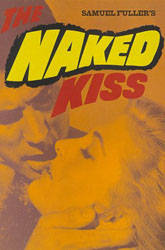 Director: Starring:
OTHER REVIEWS: FearDotCom Mulholland Dr. Rear Window What Lies Beneath |
The Ring BY: DAVID PERRY A friend of mine once received a mysterious VHS tape in the mail. It was addressed to her name and delivered to her box in her college dormitory but the return address was from Michigan, where she knew no one. Incredibly curious, I took the tape and watched it, only to find a grainy recording of a Thursday night of NBC programming. Other than giving me a chance to glance at missed episodes of Seinfeld and Friends, this tape was completely useless, a mysterious present sent to my friend from someone a thousand of miles away. The VHS tape at the center of The Ring, though, is not quite as innocuous. Viewers of this mysterious tape (from an equally mysterious sender) are not as lucky as I was: viewing this tape means death in seven days. The film opens with two girls speaking of this tape -- one has only heard of rumors of its fatal effect, the other watched it seven days earlier. Through the eeriness of a television that turns itself on and a pool of water coming from nowhere, the latter girl soon dies of a heart attack. Her mother is distraught -- how can a teenage girl with no health problems suddenly die of a violent coronary? Enter Rachel Keller (Watts), the girl's aunt. Using her work as an investigative reporter for a Seattle newspaper, Rachel begins searching through the reasons why her niece died, soon coming upon the theory that a video tape might have been to blame. Discovering the death of other kids who had seen the tape, the ever-intrepid Rachel traces her way to the tape and watches it. Of course, by doing this, she gives herself just seven days to save her own life. The film takes a long series of sidetracks, most of which seem to be forced until the film begins to explain the imagery within the video. Had the images not seemed like a bad student film, though, these distractions might have seemed more important. At its worst, the film tries to institute a romantic relationship between Rachel and her video techie ex Noah (Henderson), whom she makes a copy of the video for (some people sue their ex-lovers for property, others give them lethal video tapes). At its best, though, the film introduces oddly compelling characters like horse rancher Richard Morgan (Cox). Holding up the films domestic moments is the always interesting young actor David Dorfman as Rachel's son. Dorfman was last seen in Henry Bromell's underseen Panic, where he perfectly anchored the familial malaise of William H. Macy; here he correctly accentuates the film's already growing feeling of eeriness. One of the biggest complaints is that the film film seems to drag on in a constant attempt to find an ending. There are three moments at the end of the film that seem to be simple preparations for the cradits scroll. The actual finale does pack some punch (though not near as much as the filmmakers seem to think it has) but it would have meant more had the film not already provoked people to prepare to leave twice before. The Ring comes from the Japanese thriller Ringu, which has been heralded as a masterpiece of atmospheric filmmaking. That film has not had an American release in anticipation for the American remake and, thus, cannot be used as a comparison. However, it can be said that the new film does create an incredible atmosphere (whether it is of the same height as the Japanese version is still to be seen). The film is not necessarily scary (though the movie does attempt a few scares) but it is saturated in creepiness. The Ring is able to rely heavily on this
atmosphere for much of its duration. However, the contrivances that kill its final moments
help to hamper what is essentially a strong work. Unlike The Sixth Sense, this is
a good film with a bad ending -- the exposition is truly satisfying, but the end product
is unfortunately lacking. Director Gore Verbinski deserves credit for creating one of the
year's most intensely weird films even if he has no idea how to sufficiently conclude it. |




